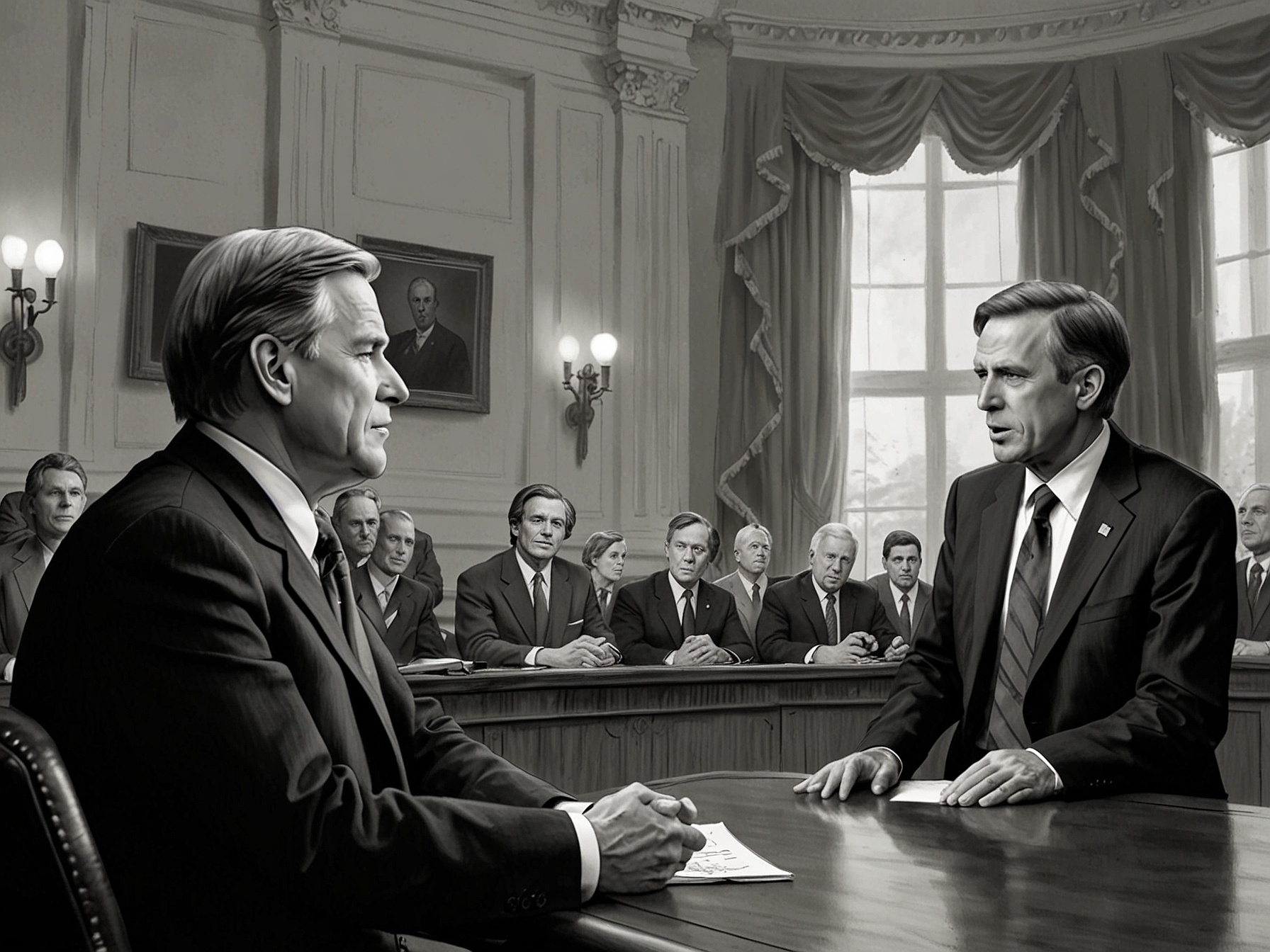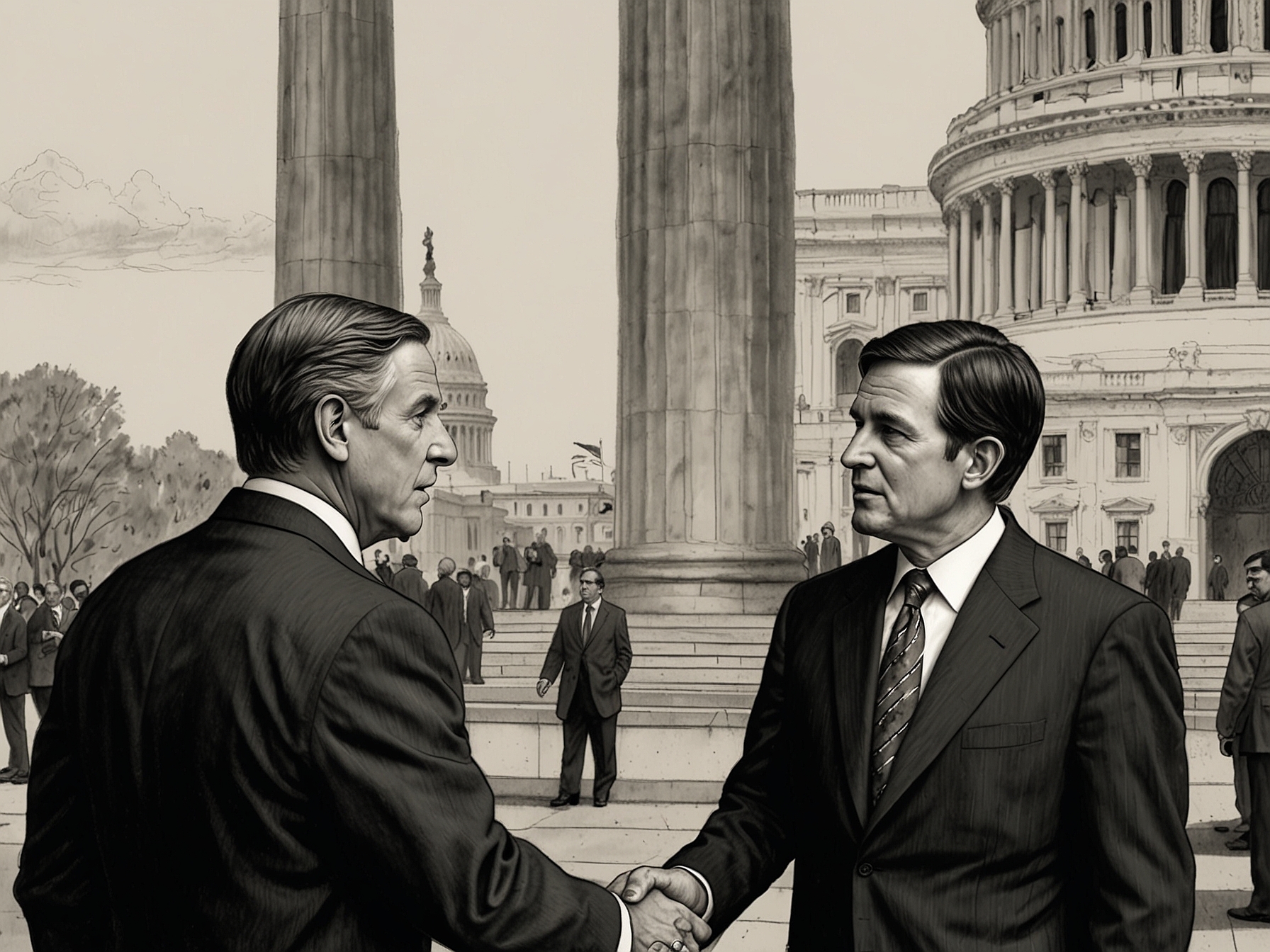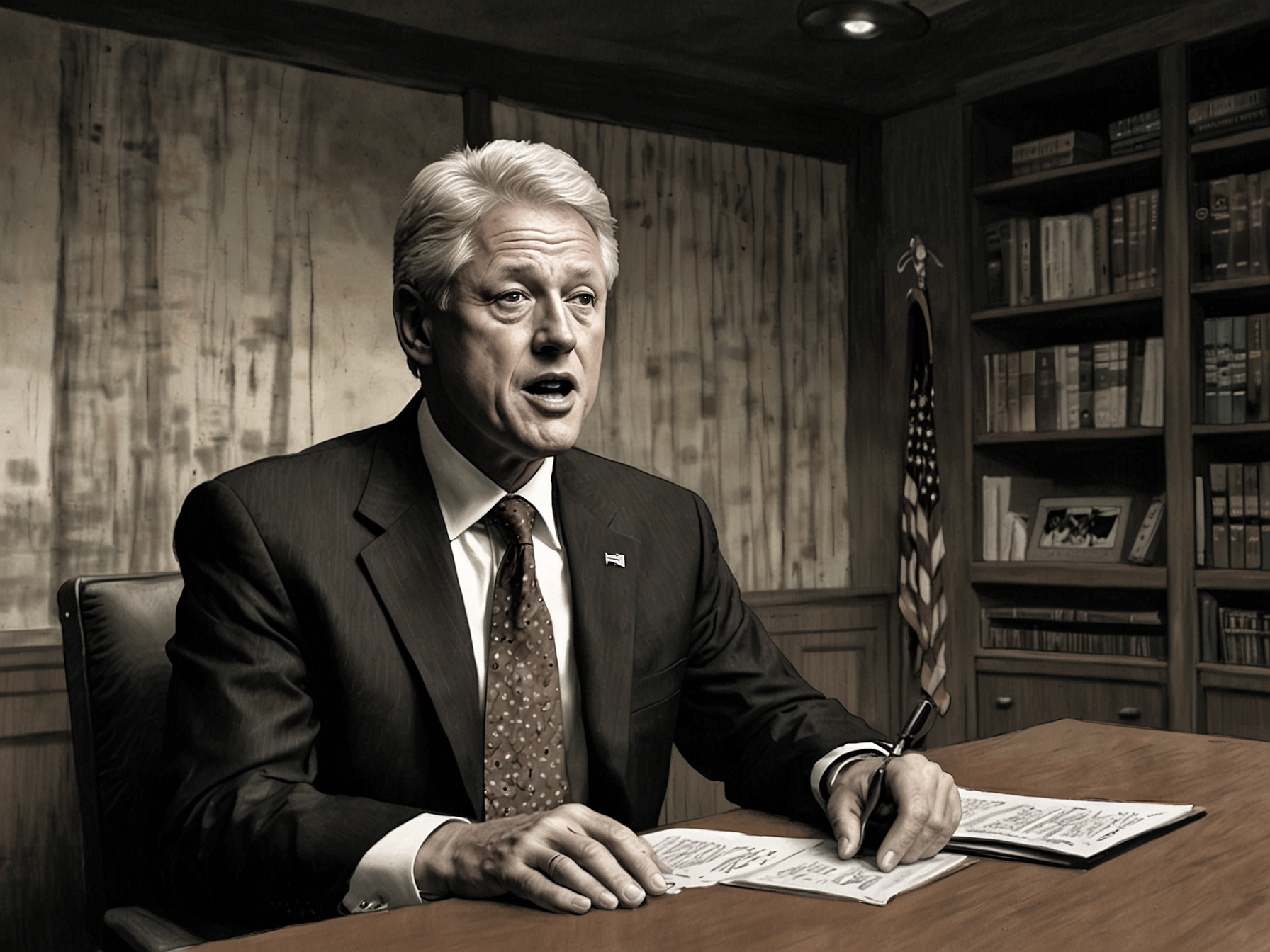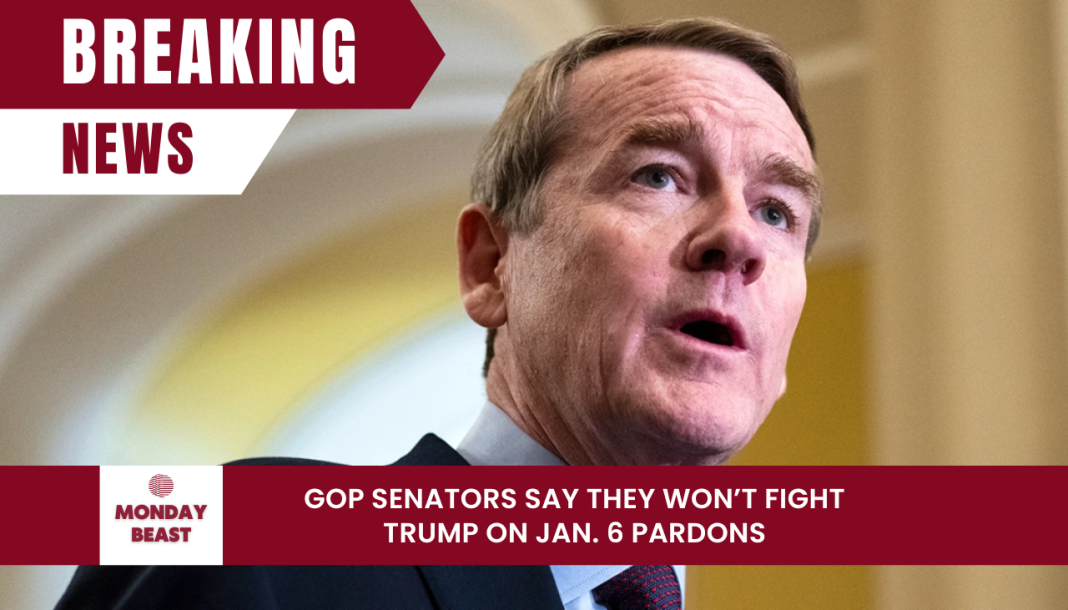Setting the Stage for Pardons
Republican senators are treading cautiously. The issue of pardons for those involved in the January 6 Capitol riots is looming over Washington. After President Biden’s pardon of his son Hunter, discussions among GOP leaders have shifted dramatically, opening the door for Trump’s potential actions, which some lawmakers believe could guarantee loyalty from supporters.
Trump, known for his unpredictability, indicated that pardoning protesters on “Day 1” of his presidency is a top priority. What does this mean exactly? As over 1,250 individuals have faced charges in connection with that day, the implications are enormous.

Many GOP senators who experienced the chaos firsthand are reluctant to block Trump. The sentiment is different now compared to a few years ago. They seem to be adopting a ‘let’s wait and see’ attitude, allowing Trump’s plans to unfold without resistance.
Pardons and Political Power
Senate Republican leaders are emphasizing Trump’s power to pardon. Incoming Senate Majority Leader John Thune believes Trump will have the authority to make these decisions. “He’ll have to make his own call,” Thune stated when discussing pardoning the Jan. 6 convicts, marking a striking change from the harsh criticisms initially aimed at those who stormed the Capitol.
Sen. John Cornyn reinforced that the president’s clemency powers are considerable. This raises questions: If Trump uses this power, what message does it send? Will it signify an endorsement of those violent acts?

Only time will tell how GOP sentiments will sway. Some, like Sen. Lindsey Graham, appear to be beating a cautious path. He seems open to pardons, yet draws a line at those who harmed law enforcement during the riots.
Different Perspectives on January 6
While some senators support pardoning, others are hesitant. The stark divide reflects broader trends within the GOP. Senate Minority Leader Mitch McConnell’s firm opposition to pardons shows that not all Republicans are aligned with Trump’s views.
McConnell’s previous comments emphasize that those who disrupted the democratic process should not receive leniency. This distinction among GOP leaders creates a multifaceted debate surrounding justice, accountability, and the ethics of pardoning.

Sen. Bill Cassidy’s thoughts echo the frustrations of many. He reminds us that many who pled guilty have already accepted their fates. Their admissions carry weight in the ongoing discourse about what validates and undermines the integrity of laws.
Trump’s Vision for the Future
Trump’s desire to pardon those he calls “hostages” reveals his strategy of rallying support. But what are the ramifications? Many view this assurance as both hopeful and alarming, while supporters of the pardons see them as a means to correct perceived injustices.
On the flip side, opponents argue this undermines the sanctity of the legal system. Does he perceive himself as some kind of savior for those involved? Or is he merely looking to bolster his influence?
It raises a myriad of fundamental questions about the consequences of granting such pardons. The nuanced perspectives on this hot topic illustrate the complexities facing modern Republican politics.
Pardon Politics and its Fallout
The idea of pardons for January 6 protesters is still very much alive. Some Republican leaders have softened their stances, leaving the door ajar for a potential Trump-led reshaping of criminal accountability. Yet, criticism persists.
Those who believe in justice worry that pardons could erode public trust in the legal process. The fallout from these decisions could reshape the political landscape for years to come.
What does this decision-making process say about values and priorities in the party? As the GOP grapples with its identity, the fate of those involved in the January 6 events reflects the shifting tides of support and dissent within the party.
Ultimately, pardons represent more than just a legal matter. They expose the wrestling match within the GOP, as members navigate their way between loyalty to Trump and their accountability to constituents.
Conclusion: Looking Ahead
The developments surrounding pardons are far from over. With Trump returning to prominence, expectations are mounting. His interventions could ignite yet another political firestorm.
What will be the outcome? The convergence of power, loyalty, and morality plays a crucial role here. Whether with his supporters or dissenters, Trump’s actions related to January 6 will undoubtedly leave a lasting legacy.
As we consider the repercussions of these decisions, one can’t help but wonder: how will history judge those who stood silently, allowing pardons to silence justice?




